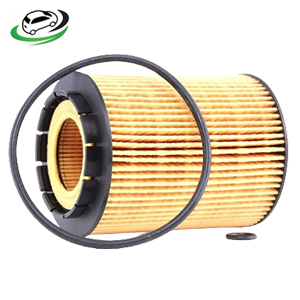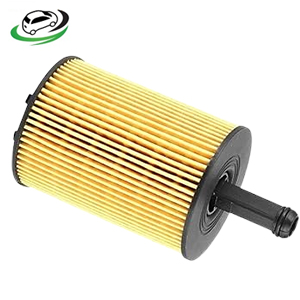-12%
Get Rear Upper Control Arm Bush AUDI A3/S3/SportB./LIM./QU. 2004-2013 1K0501541C
The outer control arm bushing is an essential component in a vehicle’s suspension system, particularly influencing the ride quality, handling, and safety. It acts as a pivot point for the control arm, allowing it to move smoothly while connecting the vehicle’s chassis to the suspension. This article explores the significance, types, construction, symptoms of failure, and maintenance of outer control arm bushings.
Importance of Outer Control Arm Bushings
Outer control arm bushings play a crucial role in maintaining a vehicle’s handling and stability. Their primary functions include:
- Absorbing Road Shocks: These bushings help in dampening vibrations and absorbing shocks from road irregularities, contributing to a smoother ride.
- Reducing Noise and Vibration: By isolating the chassis from suspension vibrations, they reduce noise and vibration transmitted to the cabin.
- Ensuring Proper Alignment: They maintain the alignment of the control arms, ensuring accurate wheel positioning for better handling.
- Enhancing Stability: Providing a flexible yet firm connection, they improve the vehicle’s stability during acceleration, braking, and cornering.
Types of Outer Control Arm Bushings
Outer control arm bushings are available in various materials and designs, each offering different performance characteristics:
- Rubber Bushings: These are the most common and provide a good balance between comfort and durability. They offer excellent vibration and noise isolation, making them ideal for everyday driving.
- Polyurethane Bushings: These bushings are stiffer than rubber ones, providing better handling and response. They are more durable but can transmit more noise and vibration, making them suitable for performance-oriented driving.
- Solid Bushings: Made from materials like aluminum or steel, solid bushings offer the least flexibility but the highest precision in handling. They are typically used in racing and high-performance vehicles.
- Hydraulic Bushings: Containing a fluid-filled chamber, these bushings offer superior damping characteristics, balancing comfort and performance. They are often found in luxury and high-end vehicles.
Construction and Materials
The construction of outer control arm bushings involves several components:
- Inner and Outer Metal Sleeves: These provide structural support and are usually made from steel or aluminum. The inner sleeve is mounted to the control arm, while the outer sleeve is fixed to the suspension frame.
- Elastomeric Core: This core, made from rubber or polyurethane, provides the necessary flexibility to absorb shocks and vibrations. In hydraulic bushings, the core also includes a fluid-filled chamber for enhanced damping.
- Bonding Agents: High-quality bushings use strong bonding agents to adhere the elastomeric core to the metal sleeves, ensuring durability and longevity.
Symptoms of Failing Outer Control Arm Bushings
1. Clunking or Knocking Noises
One of the most noticeable symptoms of failing outer control arm bushings is a clunking or knocking noise coming from the suspension area. These sounds are typically heard when driving over bumps, potholes, or rough roads. The noise occurs because the worn bushing allows excessive movement of the control arm, causing it to make contact with other suspension components.
2. Poor Handling and Increased Body Roll
Worn bushings can significantly affect a vehicle’s handling. Drivers may notice increased body roll and sway, especially during cornering or sudden maneuvers. This is because the bushings are no longer able to keep the control arm properly aligned, leading to a less stable and more unpredictable driving experience.
3. Uneven Tire Wear
Failing control arm bushings can cause misalignment of the wheels, leading to uneven tire wear. This is often seen as excessive wear on the inner or outer edges of the tires. Uneven tire wear not only reduces the lifespan of the tires but can also compromise traction and safety, especially in adverse driving conditions.
4. Vibration and Harshness
As bushings wear out, they lose their ability to absorb road shocks and vibrations effectively. This can result in a harsher ride, with increased vibrations felt through the steering wheel, seats, and floor. This symptom is more pronounced when driving on rough or uneven surfaces, as the suspension is no longer properly cushioned.
5. Rear-End Instability
For vehicles with rear control arms, failing bushings can lead to rear-end instability. This is particularly noticeable during acceleration, braking, or when navigating turns. The rear of the vehicle may feel loose or unstable, making it difficult to maintain a straight line and increasing the risk of oversteering or fishtailing.
6. Excessive Suspension Movement
During a visual inspection, excessive movement or play in the suspension components can indicate failing outer control arm bushings. With the vehicle safely lifted, a mechanic can check for movement by manipulating the control arm. Significant play or movement suggests that the bushings are no longer providing adequate support and stability.
7. Steering Wheel Vibration
Worn control arm bushings can cause vibrations that are transmitted to the steering wheel. Drivers may feel a noticeable vibration, especially at higher speeds or when driving over uneven surfaces. This can make the vehicle more difficult to control and reduce overall driving comfort.
8. Alignment Issues
Persistent alignment issues can also be a sign of failing outer control arm bushings. If the vehicle consistently pulls to one side or if alignment settings frequently go out of specification, it may be due to the bushings’ inability to maintain proper control arm alignment. This can result in poor handling and increased tire wear.
9. Braking Instability
Failing bushings can affect braking performance, leading to instability during braking. The vehicle may pull to one side or exhibit uneven braking behavior, as the control arms are not properly aligned. This can compromise safety and increase the risk of accidents, especially in emergency braking situations.
10. Visible Damage or Wear
A visual inspection may reveal visible signs of wear or damage on the outer control arm bushings. This can include cracks, tears, or other signs of deterioration in the rubber or polyurethane material. Visible damage indicates that the bushings have lost their structural integrity and need to be replaced.
Maintenance and Replacement
Regular inspection and maintenance of outer control arm bushings are essential for ensuring the suspension system’s proper functioning. Here are some tips for maintenance and replacement:
- Regular Inspection: Periodically inspect the bushings for signs of wear, cracks, or damage, especially if you frequently drive on rough roads or in harsh conditions.
- Lubrication: Some polyurethane bushings require periodic lubrication to prevent squeaking and ensure smooth operation. Follow the manufacturer’s recommendations for lubrication intervals and types.
- Replacement: If the bushings are worn or damaged, they should be replaced promptly. It is advisable to replace bushings in pairs to maintain balance and symmetry in the suspension system.
- Professional Installation: While some bushings can be replaced using basic tools, others may require specialized equipment. Professional installation ensures proper alignment and fitment, preventing potential issues down the road.
Benefits of Outer Control Arm Bushings
1. Improved Ride Comfort
One of the primary benefits of outer control arm bushings is the improvement in ride comfort. These bushings absorb and dampen vibrations and shocks from the road, preventing them from being transmitted to the passenger cabin. This results in a smoother, more comfortable ride, especially on rough or uneven surfaces.
2. Enhanced Handling and Stability
Outer control arm bushings play a crucial role in maintaining the proper alignment of the control arms and wheels. By ensuring accurate wheel positioning, they enhance the vehicle’s handling and stability. This is particularly important during cornering, acceleration, and braking, where precise control is essential for safe and predictable vehicle behavior.
3. Reduced Noise and Vibration
Bushings act as isolators between the control arms and the vehicle’s chassis, reducing the transmission of noise and vibration. This helps to create a quieter and more pleasant driving environment by minimizing the amount of road noise and vibration that enters the cabin.
4. Extended Tire Life
By maintaining proper wheel alignment, outer control arm bushings help to ensure even tire wear. This can significantly extend the lifespan of the tires, reducing the frequency and cost of tire replacements. Even tire wear also improves traction and handling, contributing to overall vehicle safety.
5. Increased Suspension Longevity
Properly functioning control arm bushings reduce the stress and wear on other suspension components, such as the control arms, ball joints, and shocks/struts. By absorbing shocks and minimizing excessive movement, bushings help to extend the lifespan of these parts, resulting in lower maintenance and repair costs over time.
6. Better Braking Performance
Control arm bushings contribute to stable and consistent braking performance. By maintaining proper alignment and reducing excessive movement, they ensure that the wheels remain correctly positioned during braking. This helps to prevent issues such as brake pull, where the vehicle drifts to one side during braking, and improves overall braking efficiency.
7. Enhanced Safety
The stability and handling improvements provided by outer control arm bushings contribute to overall vehicle safety. Properly aligned and stable suspension components help to ensure predictable and controlled vehicle behavior, reducing the risk of accidents caused by poor handling or instability.
8. Support for Performance Upgrades
For performance enthusiasts, upgrading to stiffer or more advanced control arm bushings, such as polyurethane or solid bushings, can provide even greater handling precision and responsiveness. These upgrades can enhance the vehicle’s performance characteristics, making it more suitable for aggressive driving or competitive use.
9. Minimized Maintenance Requirements
High-quality control arm bushings are designed to be durable and long-lasting, reducing the need for frequent maintenance or replacement. This contributes to lower overall maintenance costs and less downtime for the vehicle, allowing for more consistent and reliable performance.
10. Adaptability to Various Driving Conditions
Control arm bushings are designed to perform well under a wide range of driving conditions, from smooth highways to rough off-road terrain. Their ability to absorb shocks and vibrations makes them suitable for various environments, ensuring that the vehicle remains comfortable and stable regardless of the road surface.
Follow us on Facebook for more parts.



